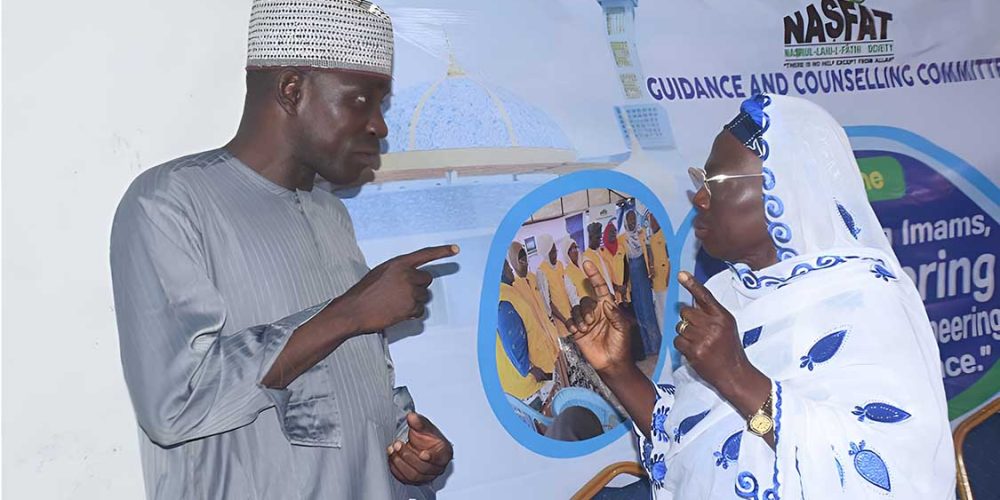
Family is one of the most important aspects of life in Islam. It is considered a source of support, love, and companionship. However, even within families, conflicts can arise due to misunderstandings, differing perspectives, and external pressures. Islam provides comprehensive guidance on how to resolve these disputes while maintaining harmony and respect among family members.
As Muslims, we are encouraged to approach conflicts with patience and understanding, remembering the teachings of the Qur’an and the Sunnah of the Prophet Muhammad (PBUH).
Allah (SWT) commands us in the Qur’an:
“وَإِن طَائِفَتَانِ مِنَ الْمُؤْمِنِينَ اقْتَتَلُوا فَأَصْلِحُوا بَيْنَهُمَا”
“Wa in ṭā’ifatan mina al-mu’minīna iqtaṭalū fa-aṣliḥū baynahumā.”
Translation:
“And if two factions among the believers should fight, then make settlement between the two.”
(Surah Al-Hujurat, 49:9)
This verse emphasizes the importance of reconciliation and resolving disputes, highlighting that it is a responsibility of the community and individuals to strive for peace.
1. Understanding the Causes of Conflict
Before addressing a conflict, it is crucial to understand its underlying causes. Common reasons for family disputes include:
- Miscommunication: Often, conflicts arise from misunderstandings and lack of clear communication.
- Differences in Values: Family members may have differing opinions on cultural, religious, or personal values.
- External Stressors: Financial difficulties, job-related stress, or societal pressures can exacerbate tensions within the family.
Recognizing the root causes can facilitate a more constructive dialogue when addressing the issue at hand.
2. The Importance of Effective Communication
Effective communication is vital in resolving disputes. The Prophet Muhammad (PBUH) emphasized the importance of clear and respectful communication. He taught that one should express feelings and concerns without resorting to harsh words or anger.
“إِنَّ مِنْ أَبْغَضِ الرِّجَالِ إِلَى اللَّهِ الْمُكَاثِرُونَ”
“Inna min abghadi ar-rijāli ilā Allāhi al-mukāthirūn.”
Translation:
“Indeed, the most despised of men in the sight of Allah are those who engage in excessive argumentation.”
(Sunan Ibn Majah, 232)*
This hadith reminds us that engaging in prolonged arguments can harm relationships and hinder resolution. Instead, we should aim for constructive dialogue, focusing on understanding each other’s perspectives.
3. The Role of Mediation in Conflict Resolution
Islam encourages the use of mediation to resolve disputes. When family members are unable to settle their disagreements independently, involving a neutral third party can help facilitate a resolution. This mediator should be someone respected by both parties, such as an elder or a community leader, who can guide the conversation and help find common ground.
Allah (SWT) reminds us in the Qur’an:
“وَأَصْلِحُوا ذَاتَ بَيْنِكُمْ”
“Wa aṣliḥū dhāt baynikum.”
Translation:
“And make settlement between your brothers.”
(Surah Al-Hujurat, 49:10)
This verse highlights the importance of fostering peace and reconciliation among family members.
4. Practicing Forgiveness and Compassion
Forgiveness is a fundamental principle in Islam and is essential for resolving disputes. The Prophet Muhammad (PBUH) exemplified forgiveness in his interactions with others, often choosing to forgive those who wronged him.
“فَإِذَا عَفَوْتُمْ فَأَحْسِنُوا”
“Fa-idha ‘afawtum fa-aḥsinū.”
Translation:
“So if you pardon, then pardon with good.”
(Surah Al-Nur, 24:22)
Practicing forgiveness does not mean ignoring the issues at hand, but rather letting go of grudges and approaching the resolution with a compassionate heart.
5. Seeking Professional Help from NASFAT Counseling
While the Islamic principles of conflict resolution provide a solid foundation, sometimes conflicts may require the assistance of professionals. NASFAT Counseling offers a range of services designed to assist families in resolving disputes. Our trained counselors understand the complexities of family dynamics and can provide guidance rooted in Islamic teachings.
Our services include:
- Family Mediation: Our counselors can act as neutral mediators to facilitate discussions and help families reach a resolution.
- Conflict Resolution Workshops: We offer workshops to equip family members with communication and conflict-resolution skills.
- Personal Counseling: Individual counseling sessions can help family members process their feelings and work through their issues in a supportive environment.
Take Action Today
If you are facing family disputes and need guidance on resolving them according to Islamic principles, NASFAT Counseling is here to help. Our experienced counselors can provide support tailored to your unique situation.
Chat with our counselors on WhatsApp or visit nasfatcounseling.org to schedule a session and take the first step toward a more harmonious family life.
Conclusion: Building Stronger Family Bonds
Resolving family disputes requires patience, understanding, and a commitment to following Islamic principles. By fostering open communication, practicing forgiveness, and seeking help when needed, families can overcome conflicts and strengthen their bonds.
At NASFAT Counseling, we are dedicated to helping families navigate their challenges, ensuring that the values of Islam guide their journey toward peace and unity. Let us support you in building a strong, harmonious family, fulfilling the purpose of family life in Islam.
